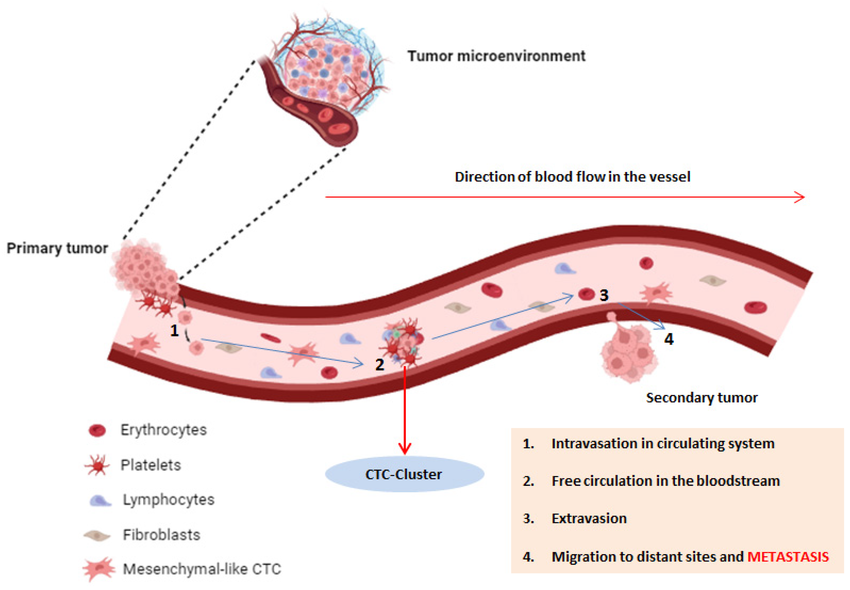
Molecular Profiling of Isolated Tumour Cells in Colorectal Cancer: Prognostic and Predictive Value
Title
Molecular Profiling of Isolated Tumour Cells in Colorectal Cancer: Prognostic and Predictive Value
Author
1. Alejandro Alzate, Student, University of the Valley, Cali, Colombia
Abstract
Colorectal cancer remains a leading cause of cancer-related morbidity and mortality worldwide, and accurate staging is critical for guiding treatment decisions. Lymph node involvement serves as one of the most decisive prognostic indicators, distinguishing stage II from stage III disease and influencing the use of adjuvant chemotherapy. Within this framework, the classification of metastatic deposits in lymph nodes has been refined into macrometastases, micrometastases, and isolated tumour cells (ITCs). While macrometastases and micrometastases have well-established clinical implications, the biological and prognostic relevance of ITCs remains an area of uncertainty. Conventional histopathological examination and immunohistochemistry have been unable to consistently demonstrate that ITCs influence survival or recurrence in colorectal cancer. However, molecular profiling technologies, including genomic sequencing, transcriptomic analysis, epigenetic studies, and single-cell approaches, offer a new opportunity to evaluate whether ITCs are biologically inert or represent seeds of metastatic potential. This paper provides a comprehensive literature-based review of ITCs in colorectal cancer, with particular emphasis on the application of molecular profiling techniques to clarify their prognostic and predictive significance. The discussion extends to emerging technologies such as artificial intelligence, digital pathology, and liquid biopsy, which may integrate with ITC profiling in the future. Finally, challenges, limitations, and future research directions are outlined. Molecularly characterizing ITCs may transform their current ambiguous clinical status into a defined biomarker guiding staging, treatment, and surveillance in colorectal cancer.
Keywords
Conclusion
Isolated tumour cells represent one of the last unresolved questions in colorectal cancer staging. While histopathology has consistently failed to demonstrate their prognostic significance, molecular profiling offers the possibility of uncovering their true biological potential. Genomic, transcriptomic, epigenetic, and proteomic studies suggest that ITCs may harbour aggressive features, including driver mutations, stemness, EMT-related expression, and immune evasion markers. However, not all ITCs are biologically equal, and their clinical relevance likely depends on molecular context. By distinguishing inert from aggressive ITCs, molecular profiling could refine staging systems, inform adjuvant therapy decisions, and personalize surveillance strategies. The integration of ITC profiling with emerging technologies such as single-cell sequencing, artificial intelligence, and liquid biopsy heralds a new era in the understanding of minimal residual disease in colorectal cancer. Ultimately, molecular profiling may transform ITCs from a pathologic curiosity into a clinically meaningful biomarker guiding precision oncology.
Author Contrubution
The author alone is responsible for the study's conception, design, data collection, analysis, interpretation, and manuscript preparation.
Funding
No specific grants from any funding agencies in the public, commercial, or non-profit sectors were received for this research, authorship, or publication.
Conflict of Interest
The authors declare no conflicts of interest related to this study.
Data Sharing Statement
Not applicable.
Software And Tools Use
Not applicable.
Acknowledgements
I express my gratitude to those who provided expertise and assistance throughout this study and manuscript preparation. Special thanks to the anonymous peer reviewers for their valuable feedback.
Corresponding Author
Alejandro Alzate
University of the Valley, Cali, Student, Colombia
Copyright
Copyright: ©2026 Corresponding Author. This is an open access article distributed under the terms of the Creative Commons Attribution License , which permits unrestricted use, distribution, and reproduction in any medium, provided the original author and source are credited.
Alzate, Alejandro. “Molecular Profiling of Isolated Tumour Cells in Colorectal Cancer: Prognostic and Predictive Value.” Scientific Research Journal of Biology and Life Science, vol. 3, no. 1, 2025, pp. 39-43, https://isrdo.org/journal/SRJBL/currentissue/molecular-profiling-of-isolated-tumour-cells-in-colorectal-cancer-prognostic-and-predictive-value
Alzate, A. (2025). Molecular Profiling of Isolated Tumour Cells in Colorectal Cancer: Prognostic and Predictive Value. Scientific Research Journal of Biology and Life Science, 3(1), 39-43. https://isrdo.org/journal/SRJBL/currentissue/molecular-profiling-of-isolated-tumour-cells-in-colorectal-cancer-prognostic-and-predictive-value
Alzate Alejandro, Molecular Profiling of Isolated Tumour Cells in Colorectal Cancer: Prognostic and Predictive Value, Scientific Research Journal of Biology and Life Science 3, no. 1(2025): 39-43, https://isrdo.org/journal/SRJBL/currentissue/molecular-profiling-of-isolated-tumour-cells-in-colorectal-cancer-prognostic-and-predictive-value
2146
Total words861
Unique Words99
Sentence21.494949494949
Avg Sentence Length0.35889850889851
Subjectivity0.05201418951419
PolarityText Statistics
Viewed / Downloads
Total article views: 296 (including HTML, PDF, and XML)| HTML | XML | Total | |
|---|---|---|---|
| 193 | 45 | 58 | 296 |
Viewed (geographical distribution)
Thereof 296 with geography defined and 0 with unknown origin.